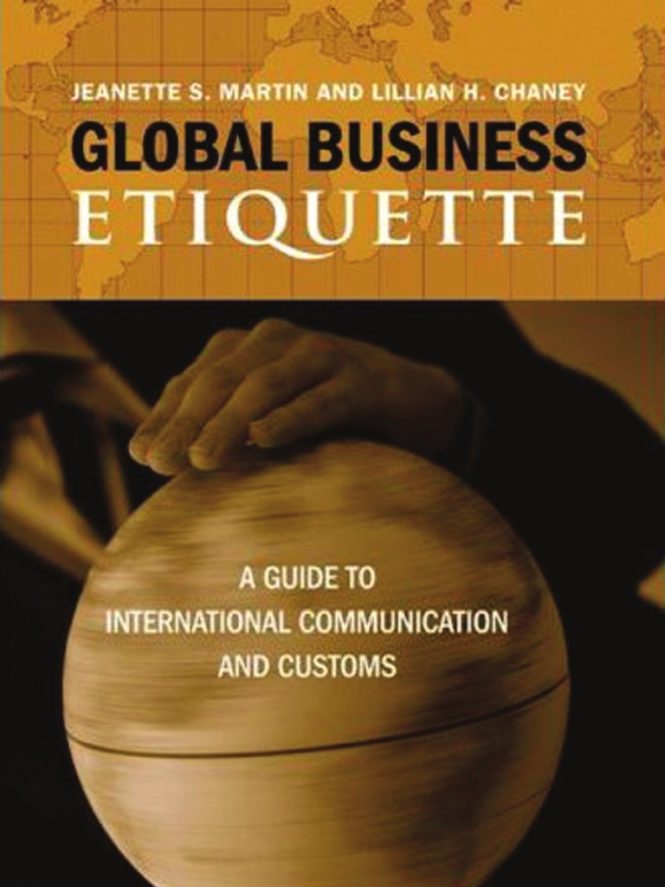

Mastering the art of international business communication and etiquette is paramount for success in today’s interconnected world. International business transactions involve a myriad of cultural nuances, communication styles, and expectations that often differ drastically from those in your home country. This article dives deep into the complexities of navigating these differences, offering practical strategies to facilitate positive interactions and achieve mutually beneficial outcomes. We’ll explore the importance of understanding cultural differences, adapting communication styles for different contexts, and demonstrating appropriate business etiquette. The following sections will provide specific examples, statistics, and actionable advice to help you confidently navigate the intricacies of international business communication and etiquette.
Understanding Cultural Nuances in International Business Communication
The Impact of Culture on Communication
International business success hinges on understanding and respecting cultural differences. Cultural values influence communication styles, business practices, and even the way decisions are made. For instance, some cultures prioritize direct communication, while others favor indirect approaches. Understanding these nuances is essential to avoid misinterpretations and foster positive relationships with international partners. Miscommunication or misunderstandings can have severe consequences for a business, leading to costly mistakes or damaged reputations. A good example is the difference between American and Japanese negotiation styles. Americans tend to be more direct and explicit, while Japanese negotiations are often more subtle and indirect. This fundamental difference must be understood to successfully negotiate contracts.
Adapting Communication Styles for Different Contexts
Choosing the Right Communication Channel
Choosing the appropriate communication channel is crucial for conveying your message effectively. Email, phone calls, or video conferencing are all viable options, but their appropriateness varies significantly based on context and the specific relationship you have with your international counterpart. A business-oriented email should always be respectful, efficient, and concise to avoid misunderstandings. In contrast, a video call can be an effective way to build trust and ensure that emotions are conveyed accurately. Understanding which channel is most appropriate is crucial for avoiding potential misunderstandings and for conveying your message clearly and effectively.
Tailoring Language and Tone
The language and tone of your communication are critical elements in international business. While direct communication is often valued in certain cultures, indirect communication is preferred in others. It is essential to tailor your language and tone to the specific cultural context to avoid inadvertently offending or misinterpreting your counterpart’s message. This includes adjusting your vocabulary, sentence structure, and even nonverbal cues to align with the prevailing cultural norms. A strong example of this is the use of humor. What is considered humorous in one culture may be offensive in another. Therefore, it is important to be mindful of the potential impact of humor on your message and adapt your communication style accordingly.
Demonstrating Appropriate Business Etiquette
Respecting Cultural Norms
Understanding and respecting cultural norms is paramount. Different cultures have distinct customs and traditions that shape their business interactions. For example, gift-giving etiquette varies considerably across countries. In some cultures, exchanging gifts is a standard practice to build rapport, while in others, it is considered inappropriate or even offensive. The importance of researching cultural norms and adjusting your behavior accordingly cannot be overstated. Careful preparation and research can significantly impact the success of business negotiations, especially in high-stake scenarios, such as international joint ventures.
Punctuality and Time Management
Time perception varies widely across cultures. Punctuality is highly valued in some cultures, while others have a more flexible approach to time. Demonstrating respect for the time of your international partners is essential for establishing trust and professionalism. A detailed analysis of time-management practices, including specific cultural considerations, is essential for success in international business.
Handling Difficult Conversations Across Cultures
Recognizing Potential Conflicts
International business conversations can sometimes present unique challenges. Understanding potential cultural differences in communication styles and conflict resolution can prevent misunderstandings and misinterpretations. Differences in negotiating styles, decision-making processes, and conflict resolution strategies can lead to misunderstandings and conflicts. Different cultures have different ways of resolving conflicts, and understanding these differences is crucial for a smooth and successful conversation. Misinterpretations can result in significant financial losses and reputational damage.
Communicating Effectively During Disputes
Effective communication during disagreements is essential in international business. Cultural context is vital when handling difficult conversations. Active listening and careful consideration of nonverbal cues can greatly enhance the effectiveness of cross-cultural communication. For example, direct confrontation may be acceptable in one culture, while a more indirect approach might be preferred in another. Understanding the acceptable communication styles and conflict resolution methods in the target culture can avoid misunderstandings and prevent conflicts.
The Role of Nonverbal Communication
Body Language and Gestures
Nonverbal communication, such as body language and gestures, plays a significant role in international business interactions. A simple gesture in one culture might carry a completely different meaning in another, potentially leading to misunderstandings. Therefore, it is important to pay close attention to nonverbal cues. This requires researching the cultural context and being mindful of potentially offensive behaviors. For instance, maintaining eye contact, which is considered appropriate in some cultures, might be deemed disrespectful in others.
The Importance of Adapting to Cultural Preferences
Communication Preferences
Understanding and adapting to different communication preferences is crucial for building trust. Understanding preferred communication styles is important for building effective relationships with international partners. The differences in communication preferences can include the use of direct or indirect language, the preferred level of formality, and the amount of detail provided. Being flexible and willing to adjust your approach according to the preferences of your international counterparts builds trust and promotes effective communication.
Technology and International Business Communication
Utilizing Technology Effectively
Technology plays a vital role in international business communication. Tools like video conferencing, instant messaging, and project management software facilitate communication across geographical boundaries. The proper use of technology is crucial to success. It is essential to ensure that communication technology is used effectively, avoiding potential misunderstandings or misinterpretations due to cultural differences in the use of technology.
Ethical Considerations in International Business
Maintaining Professionalism
Ethical considerations are integral to international business communication. Maintaining professionalism in all communications is crucial. This includes avoiding language or actions that may be perceived as offensive or inappropriate within a particular cultural context. Being mindful of cultural values and traditions when addressing potentially sensitive topics is important. It’s also important to ensure that your communication does not violate any legal or regulatory requirements of the target country or region.
Case Studies on Ethical Violations
Many examples exist where ethical issues in international business transactions caused significant financial losses and reputational damage for organizations.
The Use of Interpreters and Translators
Importance of Professional Support
In complex situations or when language barriers exist, professional support from interpreters or translators can be essential. In cases where language differences exist, using the appropriate translator or interpreter ensures accurate communication and avoids potential misunderstandings. Ensuring that interpreters and translators are properly trained and qualified is important. Professional interpreters should always be employed to avoid confusion.
Case Studies on Successful International Business Negotiations with Interpreters
Many business negotiations have been successful thanks to the expertise of professional interpreters and translators.
In conclusion, mastering international business communication and etiquette is crucial for success in today’s globalized marketplace. By understanding cultural nuances, adapting communication styles, and demonstrating respect, businesses can foster strong relationships, navigate complex situations, and achieve mutually beneficial outcomes. Remember, clear communication, sensitivity, and professionalism are paramount. Implement the strategies outlined in this article to build trust, enhance your reputation, and drive your international business forward.